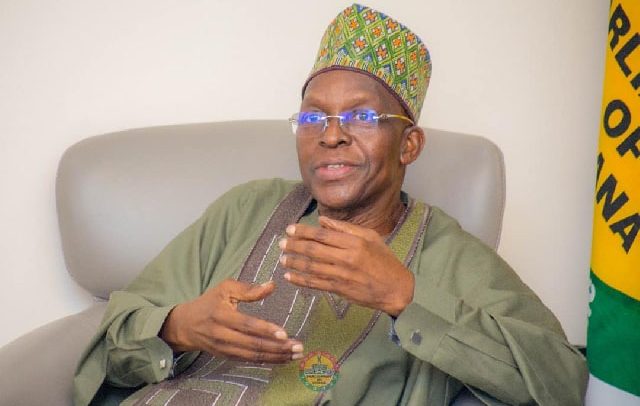Alban Bagbin
SPEAKER OF Parliament, Alban Sumana Kingsford Bagin, has said lack of information about the function of the legislature by judges has resulted in many “erroneous decisions” against some factual situation in the House.
The Speaker, who is a lawyer, criticised the Supreme Court for ruling that Section 43 of the Narcotics Control Commission Act was unlawful.
Speaking to the media in Parliament last Friday, he questioned various judgments delivered by the apex court in cases involving Parliament.
“There are a lot of things that we do that they don’t know about and so many of the decisions they have given are actually based on erroneous understanding of some factual situation in the House,” Mr. Bagbin noted.
He continued, “I have had the opportunity of meeting some of them and drawing their attention to the fact that these findings in your judgment or ruling do not hold in the House.”
“We don’t do things that way, but it is because of the lack of our presence when those cases are being held, and I was referring to this Manan case which you referred to about the striking out of Section 43 of the Narcotics Control Commission Act as one of them,” he added.
The Speaker said he was supposed to be a party in that case, which was against him and the Attorney General, but was not served and therefore had no knowledge of it until after the judgment.
“A copy was given to me and I took my time and read through it. In fact, I was shocked when one of the reasons for the ruling was that there was no debate on that proposed amendment, and that it was in contravention of Article 106.
“But usually, you all know that if at the committee level, the committee is unanimous with an issue and you bring it to the floor and the non-members of the committee don’t have any issue with it, there is no need for you to debate it,” he asserted.
Corruption
On corruption, the Speaker admitted that corruption in Ghana was not only a perception, but also real, indicating, “We all agree that it is systemic corruption.”
“The only way you can fight systemic corruption is to change the system. That is how you fight it, and that is what I am trying to do – to change the system,” he intimated.
The Speaker added, “You change the system in such a way that it will be a disincentive to be corrupt.”
“That is what we are working towards, and so by next year, I am going to work, together with civil society, on how we will legislate to facilitate and regulate the process of campaign financing and funding of campaign by individual candidates – whether as MPs or Assembly Members or Presidential candidates,” he pointed out.
According to him, the nation cannot just leave campaign financing as it is and make election processes also free for all.
“Nobody is asking where they get the money, how they spent it, and nobody cares. Then at the end of the day, the person is supposed to be Father Christmas. That, you know, you are not being realistic, and it is worsening, day in and day out.
“We are going to come out with a law to legislate on this matter, and there is no harm in saying that please, you cannot print coloured Lacoste t-shirts.
“The law can prescribe that and there is a chunk of money that will be saved just by doing that. We can restrict it to only posters. I am just making suggestions,” he stated.
By Ernest Kofi Adu, Parliament House


